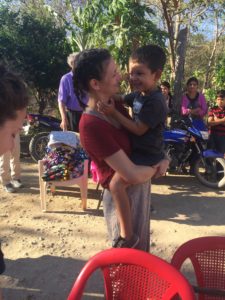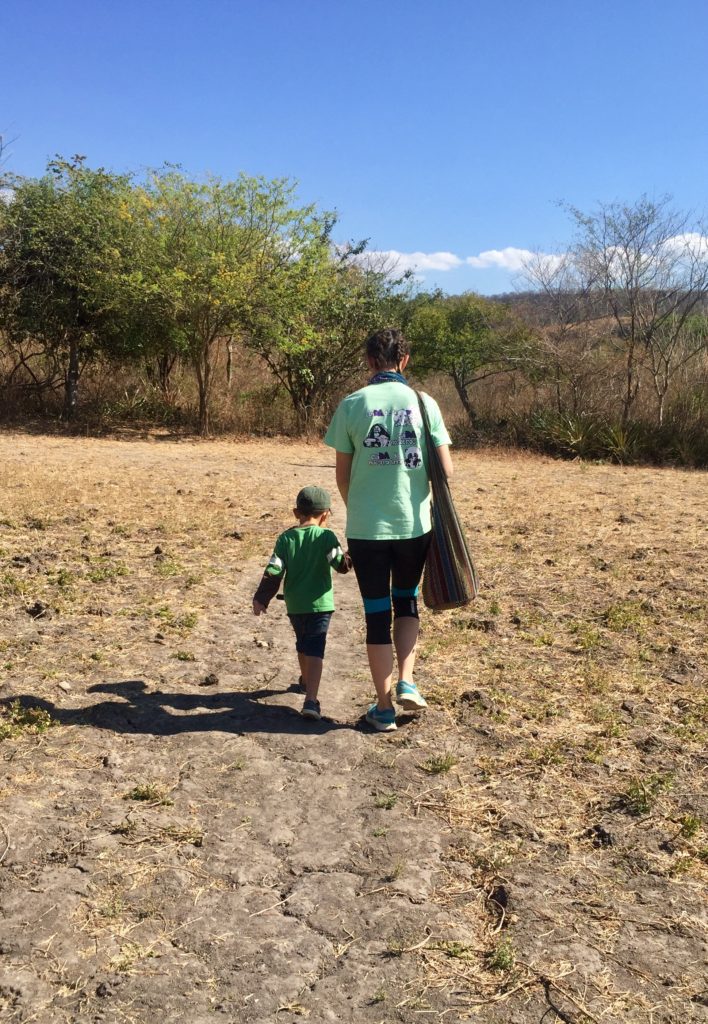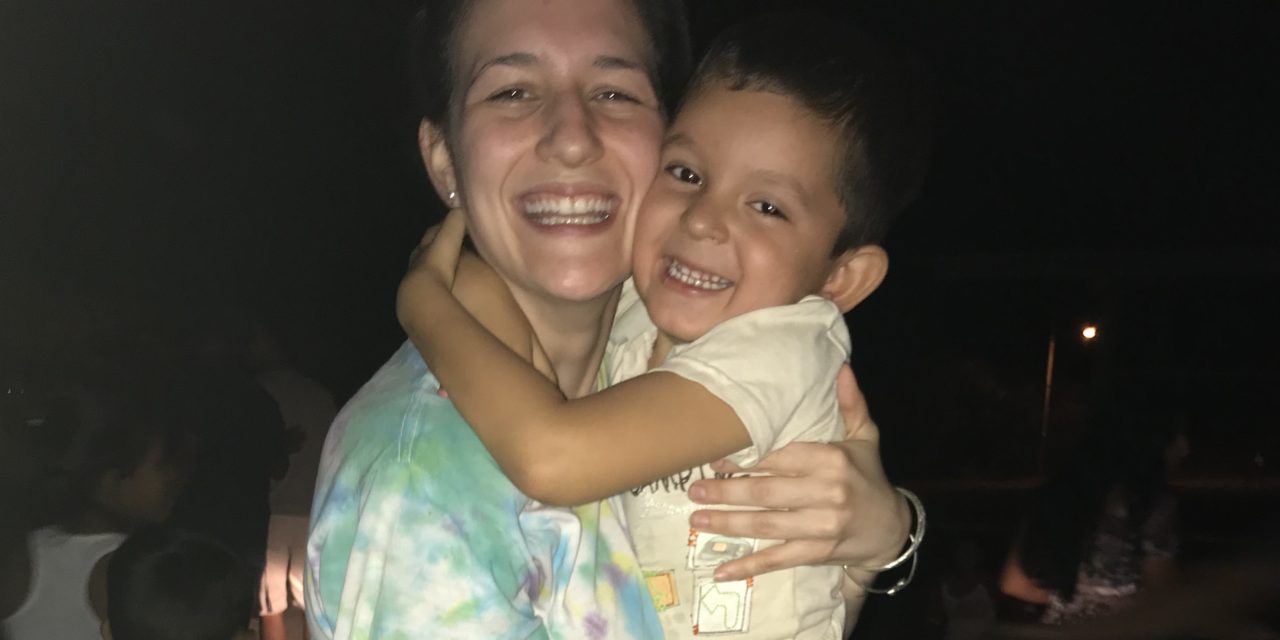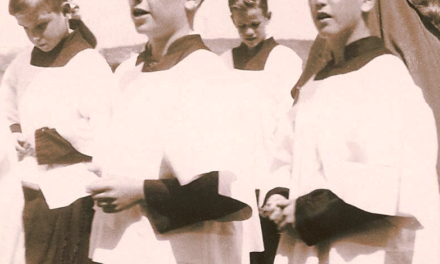I began volunteering regularly in community service in my senior year in college, but I had a difficult time finding a service organization which felt authentic to my background. I began with the Salvation Army, which left me spiritually on edge. I struggled to find my place in faith-based service, as I was never religious myself. Despite these early feelings of disconnection to faith-based service, I finally discovered a bridge between my own spirituality and the religion of all people; the human desire for connection and community.
The first time I went to the Salvation Army, I had no prior knowledge of its Christian
affiliation. Sitting in the pews of the chapel, I was so shocked and internally absorbed that I hardly got to know any of the kids. I felt out-of-place, like I shouldn’t be there. As a kid, I rarely attended church, except when my dad was having an existential crisis  and sought a higher being for guidance. As I grew up, I became a proclaimed atheist, telling the kids on the bus that I believed in “the religion of Devin” which was my naive and self-centered version of the millennial “I’m not religious; I’m spiritual.” Not knowing the word “spiritual” or that I was in fact spiritual, rather than atheist, I decided to choose the label that would annoy people the most. Once in college, I bloomed into my true millennial self and found out that I am spiritual, but not quite religious. This spiritual identity led me to feel out-of-place that first night at the Salvation Army. While all the kids belted out the lyrics “I am a C-H, I am a C-H-R-I-S-T-I-A-N” I mumbled the words, feeling like I was lying to myself, the children, and to the universe itself.
and sought a higher being for guidance. As I grew up, I became a proclaimed atheist, telling the kids on the bus that I believed in “the religion of Devin” which was my naive and self-centered version of the millennial “I’m not religious; I’m spiritual.” Not knowing the word “spiritual” or that I was in fact spiritual, rather than atheist, I decided to choose the label that would annoy people the most. Once in college, I bloomed into my true millennial self and found out that I am spiritual, but not quite religious. This spiritual identity led me to feel out-of-place that first night at the Salvation Army. While all the kids belted out the lyrics “I am a C-H, I am a C-H-R-I-S-T-I-A-N” I mumbled the words, feeling like I was lying to myself, the children, and to the universe itself.
To make things worse, every night during dinner, all of the kids and volunteers are given an assignment to learn a fact about each person at their table. The fact that night happened to be each person’s favorite proverb. I didn’t know a single proverb. I sat imagining one of the kids at my table standing up to say “Miss. Devin doesn’t have a favorite proverb, in fact she doesn’t know any proverbs, and by the way she is not a C-H-R-I-S-T-I-A-N.” With this mortifying scene playing out in my head, I quickly googled proverbs about environmentalism, so that I would be telling at least a half truth. I knew I could identify with a proverb that was about nature, and since it would be the only proverb I knew, it had to be my favorite.
As the nights went on, I became significantly more comfortable being in the chapel, and even singing “I am a C-H, I am a C-H-R-I-S-T-I-A-N” at the top of my lungs with the kiddos. I no longer felt like a liar, because I realized that identifying as a Christian was less important than the bonds I was creating with the kids. One night while we were sitting in the chapel waiting for kids to arrive, a little girl said to my friend Rob “I still want to be a doctor” and Rob looked down with a smile and said, “me too.” In a neighborhood were inspiration can be limited, the common dream of a six-year-old girl and a twenty-year-old college student can be a spark that brings a future alight.
 During a recent service trip to Nicaragua, I was significantly more comfortable in my spirituality. I even felt comfortable when we were in church; I remember a lady standing in the front row, with hands up in passionate surrender while she swayed to the music, giving herself fully to the service. The church members shook our hands and gave us hugs, and the sincerity of their welcome was palpable.
During a recent service trip to Nicaragua, I was significantly more comfortable in my spirituality. I even felt comfortable when we were in church; I remember a lady standing in the front row, with hands up in passionate surrender while she swayed to the music, giving herself fully to the service. The church members shook our hands and gave us hugs, and the sincerity of their welcome was palpable.
Through my service, I’ve learned how human the desire for community is, and I have seen how important religion can be in gaining that community. When we were in Nicaragua, one of the Christian volunteers was in awe at the universality of religion. In many ways, religion and spirituality is a universal language. The foundations of religion span across borders, classes, languages, and races. Nearly every religion values community, service, giving, and on some level, interconnectivity.
While I am not a Christian, I am a human with the human desire to be a part of a community, to give, to love, and this is how I found a home in the world of faith-based service.








Devin, Enjoyed reading of your journey, of discovering ones spirituality out of ones Christian roots or culture, of finding ones own “faith-based” path. Blessed be, Michael A.